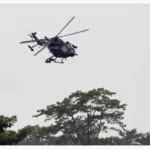In a long-awaited development, India has commenced discussions with the Gulf Cooperation Council (GCC) regarding a potential free trade agreement (FTA). This significant pact, aimed at strengthening economic ties, may not incorporate a bilateral investment treaty.
The proposed agreement carries substantial benefits for India, opening doors to a sizable and prosperous market for its goods while also seeking concessions on visas in a region that traditionally witnesses the influx of a significant Indian workforce and professionals. In addition to facilitating trade, India hopes to attract foreign investment through this venture.
Remarkably, a bilateral investment treaty may be substituted by a dedicated chapter within the FTA, a prospect welcomed by both sides. Detailed negotiations for the proposed treaty are yet to commence.
The GCC, consisting of Saudi Arabia, the UAE, Kuwait, Qatar, Bahrain, and Oman, had initially signaled its intent to move forward with the FTA over a year ago. However, hesitations in some quarters resulted in a delay. This FTA will be the second of its kind in the region after the UAE, with indications that Oman is also inclined to sign a separate agreement.
The initiation of this agreement was originally planned during the UPA regime but was put on hold due to significant disparities in positions. However, recent developments indicate a resurgence of trade negotiations by India, which has successfully concluded multiple pending treaties, including agreements with the Maldives, the UAE, and an interim agreement with Australia, while negotiations with the UK and EU continue.
India’s exports to GCC nations exceeded $51 billion in the last financial year, with substantial shipments valued at nearly $21 billion during April-August this year. Key export items included oil products, gems and jewelry, electrical machinery, chemicals, and cereals. In contrast, imports from GCC nations were valued at $133 billion during 2022-23 and just over $39 billion during April-August this year.
This renewed push for a free trade agreement exemplifies India’s commitment to expanding its economic horizons and fostering mutually beneficial partnerships with its Gulf counterparts. It represents a significant stride in strengthening India’s position in the global trade landscape.






